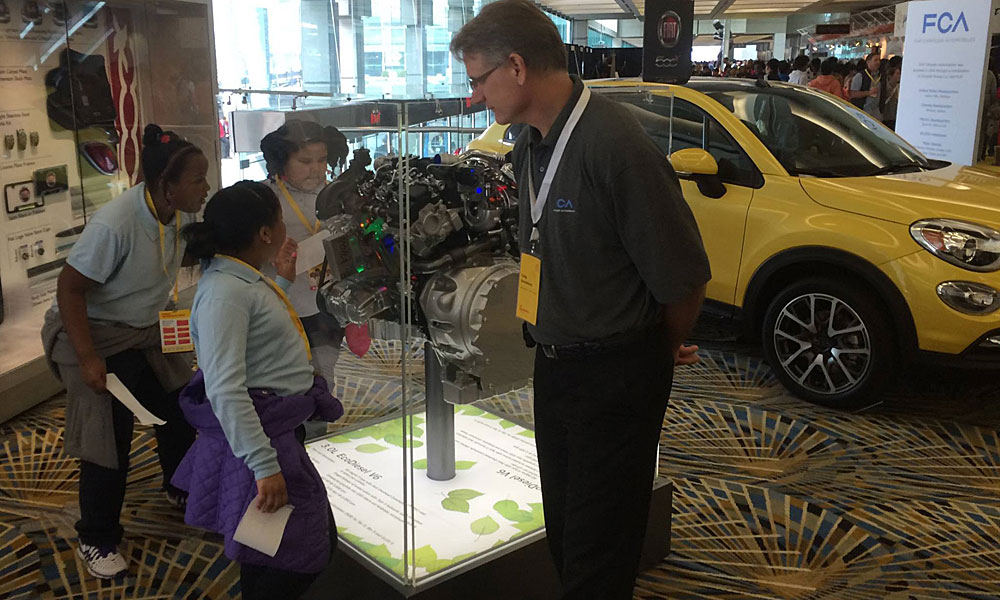The future of our industry is on display in downtown Detroit this weekend.
For the third year, the Shell Eco-marathon is being held at Detroit’s Cobo Center and I’m personally proud that FCA US LLC is a partner in the event. One of the students competing this weekend could someday get my job as Director of Advanced and SRT Powertrain Engineering.
The Shell Eco-marathon is a fantastic event that introduces high school and college students to the challenges of engineering. The competitors have a nicely framed problem to solve – make a vehicle travel as far as possible on the minimum amount of energy. But there are boundary conditions, such as safety requirements, cost budgets, timing and environmental conditions, to consider. These are the same challenges my teams face every day engineering a commercial product in the automotive industry.
I can guess what you’re thinking: What does creating a product, such as the 840-horsepower supercharged V-8 in the new 2018 Dodge Challenger SRT Demon, have to do with a battery-electric vehicle (BEV) or even a fuel cell?
As engineers, we use our fundamental understanding of physics and chemistry to optimize the efficiency of the product for the intended purpose.
In the case of the Challenger SRT Demon, the purpose of the powertrain is to propel the car down a quarter-mile drag strip as fast as possible. So, we need to create maximum power and torque and get it to the ground from initial launch.
In a battery-electric vehicle, we may be trying to arrange the battery cells and cooling system for maximum efficiency and give the customer maximum range under a wide set of operating conditions.
The knowledge, tools and processes that we use in the engineering of products, ranging from the Challenger SRT Demon to BEV, are similar – it’s just the goal of the final product that is different.
None of this happens alone. Teamwork is crucial to our work. The teamwork aspect the students learn by working in teams to create and compete in the Shell Eco-marathon are the skills we use daily.
It’s a fantastic way to get young people interested in working in the auto industry and quite a bit different than when I was a teenager. My father was a car enthusiast, so I grew up around many different types of cars and would regularly read his motoring magazines. While he had no technical engineering background, I became interested in how cars work, in particular engines. By the time I was 14 years old, I’d decided I was going to design engines for a living. Thirty-six years later I’m still working on powertrains and have designed engines for products from weed trimmers to supertankers.
This is not news, but we need more engineers. The challenges — and opportunities – in the auto industry grow every day. I can tell you that at FCA, engineers in the early stages of their careers get important roles creating powertrains that are key to our company’s future.
The Shell Eco-marathon gives engineers at FCA the chance to meet with hundreds of students who have the same passion as us – cars. These young adults already believe engineering is cool and it’s a real inspiration to see some of the novel design and manufacturing solutions the teams come up with to be competitive.
I hope some of them join us one day. I guarantee they won’t be bored.
Chris Cowland is Director of Advanced and SRT Powertrain Engineering for FCA US LLC. He’s not allowed to tell you what he’s working on for tomorrow.




